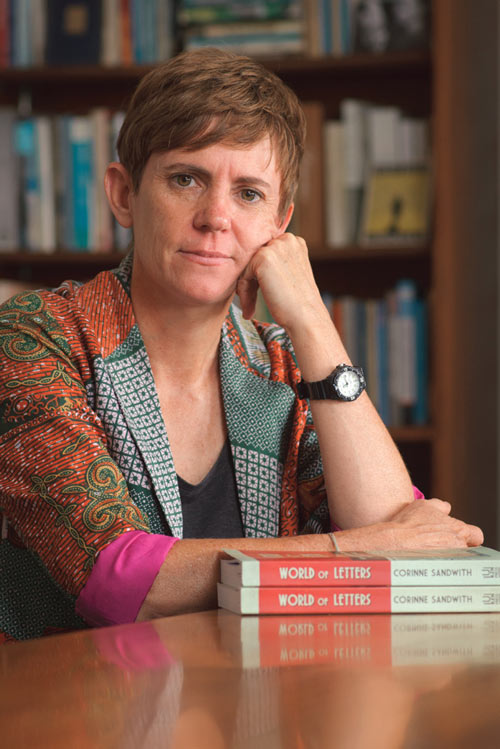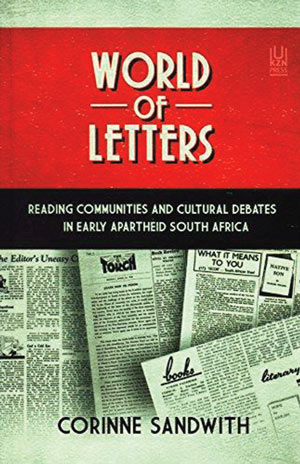 Professor Corinne Sandwith
Professor Corinne Sandwith
In reconstructing a fragmented history, Corinne Sandwith’s book World of Letters: Reading Communities and Cultural Debates in Early Apartheid South Africa (2015) makes an important contribution to the understanding of South African social and intellectual history in the early twentieth century. She is Professor in the Department of English at UP and in 2015/2016 received the Vice-Chancellor’s Book Award for World of Letters.
The study retrieves a hidden or neglected history of public intellectual engagement from the margins, thus moving away from a conventional emphasis on high culture and elite intellectual activity. In this reframed perspective, new voices and positions emerge – such as early Marxist critic Dora Taylor writing in Trek magazine, Es’kia Mphahlele writing in the guise of his alter ego ‘Rabelais’ in The Voice of Africa and Ben Kies’ dissident polemics in the New Era Fellowship. Her fine-grained and richly detailed analysis traces an important but little known intellectual and political genealogy, thus providing us with both a more nuanced and a more accurate sense of our intellectual present. It also restores a vibrant parallel stream of dissident engagement in early apartheid South Africa to its rightful position in South African social and intellectual history.
A major insight of the study is the extent to which, in South African letters, culture and politics are intertwined and entangled. More specifically, what is powerfully suggested are the ways in which arguments about culture became a means of making political claims – claims to full citizenship, claims to modernity and claims to a complex and creolised cultural identity. It also reveals the centrality of the modes of satire, irony and irreverence in the staging of oppositional views.
Professor Sandwith’s research continues to engage with the rich South African cultural archive, this time by extending the focus to include the cultural debates and intellectual traditions to be found in examples of the mainstream and commercial black press such as Bantu World, Ilanga lase Natal and Umteteli wa Bantu. The research gathers insights into black reading cultures and the world of the book in African intellectual life in early twentieth-century South Africa.
